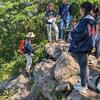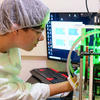Geophysics
2023
Oct
16
2023
Jun
09
2023
Mar
20
Prof. Roger Fu and his lab's work featured on BBC Podcast
2022
Nov
10
Faculty Job Advertisement in Earth’s Physical Processes: surface, crust, and mantle - Accepting Applications
EPS 120/220 Field Trip to the Connecticut River Valley
2022
Nov
07
2022
Oct
03
2022
Feb
28
Reginald A. Daly Postdoctoral Research Fellowship - Accepting Applications
Diamond Microscope Reveals Slow Crawl of Earth’s Ancient Crust
2020
Jan
15
2019
Nov
06
2019
Oct
23

